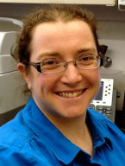Comprehensive mutation profiling by next-generation sequencing of effusion fluids from patients with high-grade serous ovarian carcinoma Journal Article
| Authors: | Shah, R. H.; Scott, S. N.; Brannon, A. R.; Levine, D. A.; Lin, O.; Berger, M. F. |
| Article Title: | Comprehensive mutation profiling by next-generation sequencing of effusion fluids from patients with high-grade serous ovarian carcinoma |
| Abstract: | BACKGROUND: Mutation analysis for personalized treatment has become increasingly important in the management of different types of cancer. The advent of new DNA extraction protocols and sequencing platforms with reduced DNA input requirements might allow the use of cytology specimens for high-throughput mutation analysis. In this study, the authors evaluated the use of effusion fluid for next-generation sequencing-based, multigene mutation profiling. METHODS: Four specimens from each of 5 patients who had at least stage III, high-grade serous ovarian carcinoma were selected: effusion fluid; frozen tumor; formalin-fixed, paraffin embedded tumor; and matched normal blood. Frozen tumors from each patient were previously characterized by The Cancer Genomic Atlas (TCGA). DNA was extracted from all specimens and was sequenced using a custom hybridization capture-based assay. Genomic alterations were compared among all specimens from each patient as well as with mutations reported in TCGA for the same tumors. RESULTS: In total, 17 distinct somatic mutations were identified in the cohort. Ten of 17 mutations were reported in TCGA and were called in all 3 malignant specimens procured from the patients. Of the remaining 7 mutations, 2 were called in all 3 specimens, and the other 5 were sample-specific. Two mutations were detected only in the cytology specimens. Copy number profiles were concordant among the tumors analyzed. CONCLUSIONS: Cytology specimens represent suitable material for high-throughput sequencing, because all mutations described by TCGA were independently identified in the effusion fluid. Differences in mutations detected in samples procured from the same patient may reflect tumor heterogeneity. © 2015 American Cancer Society. |
| Keywords: | aged; middle aged; case control study; genetics; mutation; case-control studies; cancer staging; neoplasm staging; sensitivity and specificity; ovarian neoplasms; cytology; genetic predisposition to disease; gene expression profiling; pathology; histology; dna; nucleotide sequence; ovary tumor; reference values; dna, neoplasm; carcinoma; sampling studies; genomics; dna sequence; neoplasm invasiveness; dna mutational analysis; cystadenocarcinoma, serous; epidemiology; frozen section; genetic predisposition; frozen sections; ascitic fluid; cystadenocarcinoma; ascites fluid; sequence analysis, dna; reference value; ovarian; tumor invasion; procedures; high throughput sequencing; high-throughput nucleotide sequencing; next-generation sequencing; humans; human; female; tissue embedding |
| Journal Title: | Cancer Cytopathology |
| Volume: | 123 |
| Issue: | 5 |
| ISSN: | 1934-662X |
| Publisher: | John Wiley & Sons |
| Date Published: | 2015-05-01 |
| Start Page: | 289 |
| End Page: | 297 |
| Language: | English |
| DOI: | 10.1002/cncy.21522 |
| PUBMED: | 25655233 |
| PROVIDER: | scopus |
| PMCID: | PMC4992943 |
| DOI/URL: | |
| Notes: | Export Date: 2 September 2015 -- Source: Scopus |
Altmetric
Citation Impact
BMJ Impact Analytics
Related MSK Work









